Centre for Educational Research and Innovation
CERI is dedicated to conducting high-quality research with a primary focus on education and training in Cambodia and the region to generate knowledge from qualitative and quantitative analyses rooted in data and evidence. Utilising the knowledge we generate, the centre actively facilitates policy discussions between both national and international researchers, policymakers, and practitioners through a series of workshops and policy dialogues held at both national and regional levels. In pursuit of our objectives, CERI maintain close collaborations with government agencies, educational and training institutions, civil society organizations (CSOs), and other pertinent stakeholders. This collective effort is to foster innovation and implement effective solutions in education and training. CERI's core activities revolve around research, capacity development, and policy engagement. Currently, our key areas of focus for research encompass educational technology, skills development, the advancement of quality education, and the promotion of inclusive education, spanning from K12 to higher education.
There is no data list!
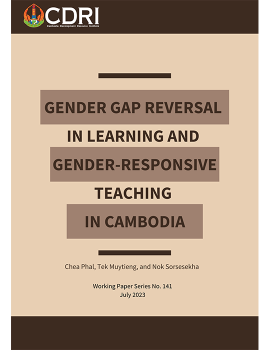
Gender Gap Reversal in Learning and Gender-Responsive Teaching in Cambodia
This study investigates the emerging reversal of gender gaps in Cambodian education, where girls now outperform boys in enrolment and learning outcomes at primary and lower secondary levels. Drawing on quantitative data from SEA-PLM and PISA-D assessments and qualitative insights from key informant interviews, the research explores national policies, teaching practices, and interventions related t...
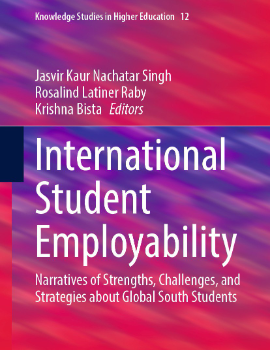
The Effects of International Experience on Self-Perceived Employability among Cambodian Students in China
This paper investigates the correlation between international experience in China and the self-perceived employability of Cambodian students using an explanatory mixed-methods approach. The findings suggest a positive correlation between international experience and students’ self-perceived employability, with technical knowledge and skills acquisition, employability skills enhancement, and person...

Upper Secondary School Tracking and Major Choices in Higher Education: To Switch or Not to Switch
This study aims to investigate the characteristics of students who switch versus those who do not switch when they transition from upper secondary to higher education. The data from 1338 students randomly selected from 21 HEIs in Cambodia in 2020 found that upper secondary school students are more likely than not to switch academic majors when they enter higher education. The tendency to switch is...
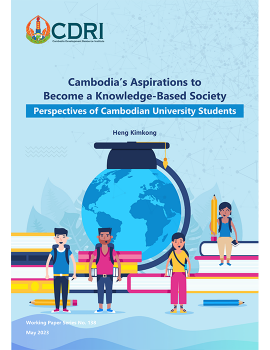
Cambodia’s Aspirations to Become a Knowledge-Based Society: Perspectives of Cambodian University Students
This study explores Cambodian university students’ perspectives on the country’s aspirations to become a knowledge-based society, a goal aligned with Cambodia’s vision to achieve upper-middle-income status by 2030 and high-income status by 2050. Using qualitative methods, including semi-structured interviews with 20 students from public and private universities in Phnom Penh, the research examines...
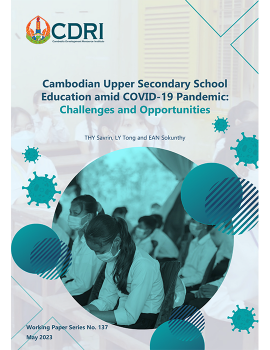
Cambodian Upper Secondary School Education amid COVID-19 Pandemic: Challenges and Opportunities
This study investigates the multifaceted impacts of the COVID-19 pandemic on Cambodian upper secondary school education, focusing on academic, economic, and mental health challenges, as well as emerging opportunities. Drawing on survey data from 685 teachers and 2,804 students across Cambodia, the research reveals widespread disruptions in teaching and learning due to limited access to digital dev...
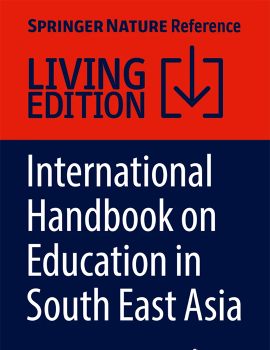
Vocational Education and Training in Cambodia
The Royal Government of Cambodia acknowledges the vital role of technical and vocational education and training (TVET) in developing a high-quality workforce to better respond to labor market demand and contribute to the national development agenda. In the past decade, with support from and collaboration with development partners, the Government has put effort into expanding access to and improvin...

The Influence of Individual, Social and Educational Factors on Entrepreneurial Intention of University Students in Cambodia
This study explored students’ entrepreneurial intention (EI) and identified the factors influencing EI under individual, social and educational dimensions. Using a nationally representative survey conducted in 2021 with 834 university students, we found that many students had a strong EI. From the regression analysis, we can confirm that the development of personal positive attributes, namely, inn...
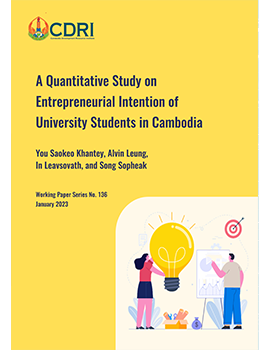
A Quantitative Study on Entrepreneurial Intention of University Students in Cambodia
This study explores the entrepreneurial intentions of Cambodian university students and the factors influencing their aspirations to pursue entrepreneurial careers. Drawing on survey data from 834 students across 19 higher education institutions, the research examines students’ career planning, business engagement, and exposure to entrepreneurship education (EE) and support programmes. Findings re...
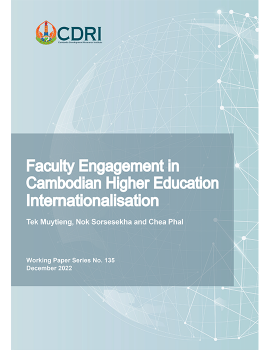
Faculty Engagement in Cambodian Higher Education Internationalisation
This study investigates the engagement of faculty members in the internationalisation of Cambodian higher education institutions (HEIs). Drawing on qualitative data from interviews with 49 faculty members and university administrators across eight HEIs, the research explores faculty attitudes, participation in internationalisation activities, and influencing factors. Findings reveal that faculty m...

Family Background as the Determinant of University Student's Technological Readiness: Evidence from Cambodia
While digital transformation around the globe has significantly gained momentum and speed, embracing technologies in our daily life is now beyond question. In this regard, we need to ask whether or not individuals are ready to accept and use technologies when provided and what really affects one's technology readiness. The main objective of this study is to understand the role of parents and famil...
